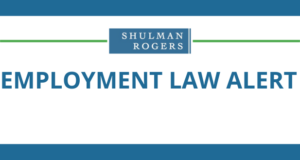
Did you know that the law may consider people who work with you, but not necessarily for you, to be your responsibility as an employer? The concept of joint employment involves situations where multiple legal entities exert control or influence over workers, making them all employers of the worker. This status carries substantial implications, including shared liability for unfair labor practices and obligations for collective bargaining.
On October 26, 2023, the National Labor Relations Board (“NLRB”) unveiled a final rule (“New Rule”) that defines the criteria for joint employer status under the National Labor Relations Act (“NLRA”). The New Rule takes effect December 26, 2023, and replaces the 2020 rule instated during the Trump administration (the “Old Rule”).
Under the New Rule, two or more entities can be classified as joint employers if they share or jointly determine any of the employees’ essential employment terms. These terms include wages, benefits, work hours, duties, supervision, work rules, tenure, and safety conditions. Notably, the New Rule emphasizes that even indirect control or reserved authority over these terms can establish joint employer status, diverging from the Old Rule’s focus on direct and immediate control. What does this mean in plain English? Think about the cleaning people in your office space. Do your managers tell them when or how to clean, if they are not doing a good enough job, or how they want things done? This type of interaction could be construed as indirect control over the employees of the third-party cleaning service, and those employees might have an argument that as a result of those directions your company is a joint employer responsible for any legal non-compliance.
The New Rule reinstates the broader criteria for joint employment that was in place during the Obama administration. Under this framework, a company can be considered a joint employer of another company’s employees, not just when it exercises direct and immediate control, but also when it has indirect influence or simply reserves the right to exercise such control, even if it never actually does so. The expansive definition of joint employment in this New Rule echoes the Biden administration’s focus on labor rights.
The implications of being recognized as a joint employer are significant. Such employers might need to engage in collective bargaining with unions representing jointly employed workers and could face joint and several liabilities for unfair labor practices committed by the other employer. And the implications are not necessarily limited to NLRA protections. Courts could extend the joint employer status and impose liability for things like wage/hour violations and discrimination or harassment claims.
We highly encourage employers to contact their Shulman Rogers attorney to review their relationships with vendors, independent contractors, and other third parties to determine potential joint-employer status under the New Rule. The New Rule is expected to lead to more litigation and legal challenges, emphasizing the need for employers to adapt to this new landscape in labor relations.
CONTACT |
MORE INFORMATIONThe contents of this Alert are for informational purposes only and do not constitute legal advice. If you have any questions about this Alert, please contact the Shulman Rogers attorney with whom you regularly work or a member of the Shulman Rogers Employment and Labor Law Group. To receive Employment Law Alerts and other timely news and information from Shulman Rogers, please click HERE to subscribe. |
Stay up to date with all the latest news and events.